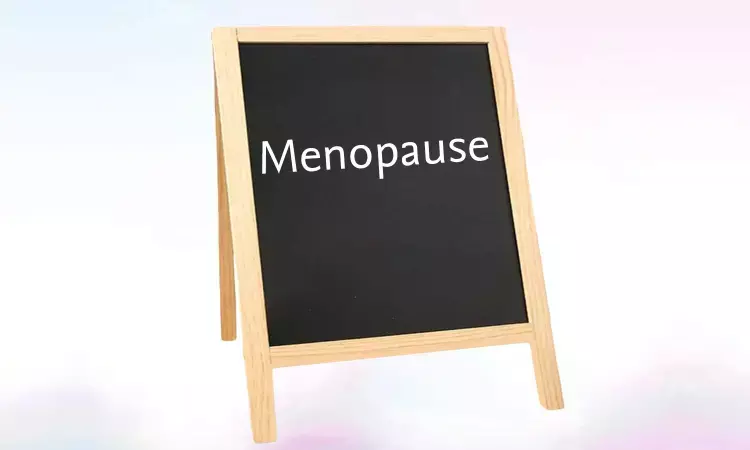- Home
- Medical news & Guidelines
- Anesthesiology
- Cardiology and CTVS
- Critical Care
- Dentistry
- Dermatology
- Diabetes and Endocrinology
- ENT
- Gastroenterology
- Medicine
- Nephrology
- Neurology
- Obstretics-Gynaecology
- Oncology
- Ophthalmology
- Orthopaedics
- Pediatrics-Neonatology
- Psychiatry
- Pulmonology
- Radiology
- Surgery
- Urology
- Laboratory Medicine
- Diet
- Nursing
- Paramedical
- Physiotherapy
- Health news
- Fact Check
- Bone Health Fact Check
- Brain Health Fact Check
- Cancer Related Fact Check
- Child Care Fact Check
- Dental and oral health fact check
- Diabetes and metabolic health fact check
- Diet and Nutrition Fact Check
- Eye and ENT Care Fact Check
- Fitness fact check
- Gut health fact check
- Heart health fact check
- Kidney health fact check
- Medical education fact check
- Men's health fact check
- Respiratory fact check
- Skin and hair care fact check
- Vaccine and Immunization fact check
- Women's health fact check
- AYUSH
- State News
- Andaman and Nicobar Islands
- Andhra Pradesh
- Arunachal Pradesh
- Assam
- Bihar
- Chandigarh
- Chattisgarh
- Dadra and Nagar Haveli
- Daman and Diu
- Delhi
- Goa
- Gujarat
- Haryana
- Himachal Pradesh
- Jammu & Kashmir
- Jharkhand
- Karnataka
- Kerala
- Ladakh
- Lakshadweep
- Madhya Pradesh
- Maharashtra
- Manipur
- Meghalaya
- Mizoram
- Nagaland
- Odisha
- Puducherry
- Punjab
- Rajasthan
- Sikkim
- Tamil Nadu
- Telangana
- Tripura
- Uttar Pradesh
- Uttrakhand
- West Bengal
- Medical Education
- Industry
Higher numbers of menopausal symptoms tied to lower work performance in women: Study

Japan: Higher number of menopausal symptoms are associated with lower work performance, reveals a recent study in the journal Menopause.
This suggests that maintaining health and providing appropriate working environment would help working women and improve work performance by reducing menopausal symptoms.
Several menopausal symptoms could decrease work performance due to different management strategies,and it becomes difficult to control all symptoms at work. Keiko Hashimoto, Course of Nursing Tohoku University, Graduate School of Medicine, Miyagi, Japan, and colleagues aimed to examine the relationship between the number of menopausal symptoms experienced and work performance in working women.
For the purpose, the researchers performed an online cross-sectional study involving 599 working Japanese women aged 45 to 65 years. To represent work performance absolute presenteeism was measured using the Japanese version of the World Health Organization and Work Performance Questionnaire short form, and menopausal symptoms were measured using the Greene Climacteric Scale.
The total number of subscales on which a participant scored more than one point represented the number of menopausal symptoms.
Key findings of the study include:
- Participants' mean age was 54.2 years, and 60.6% were postmenopausal.
- Their mean Greene Climacteric Scale score and mean absolute presenteeism score were 10.5 ± 10.6 and 61.7 ± 17.9, respectively.
- The proportions of participants who provided care for a family member, who had chronic disease, and who undertook regular exercise were significantly different among the four groups.
- After adjusting for other factors, absolute presenteeism was negatively correlated with the number of menopausal symptoms experienced.
"Higher numbers of menopausal symptoms were correlated with lower work performance, wrote the authors.
"The maintenance of health and the provision of appropriate working environments would help working women and improve work performance by reducing menopausal symptoms," they concluded.
The study titled, "Relationship between number of menopausal symptoms and work performance in Japanese working women," is published in the journal Menopause.
Dr Kamal Kant Kohli-MBBS, DTCD- a chest specialist with more than 30 years of practice and a flair for writing clinical articles, Dr Kamal Kant Kohli joined Medical Dialogues as a Chief Editor of Medical News. Besides writing articles, as an editor, he proofreads and verifies all the medical content published on Medical Dialogues including those coming from journals, studies,medical conferences,guidelines etc. Email: drkohli@medicaldialogues.in. Contact no. 011-43720751


